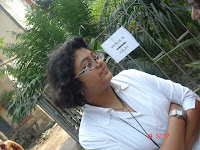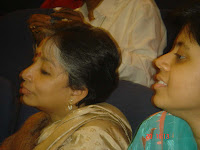Farewell
'Comparative Literature'- huh what was that again?
Comparative Literature- Wow
The transition of the personal and the academic journey has been epic at least on a personal level. Our batch has truly been a 'golden batch' (not just in lieu of us entering in the 50th year of the department) There were questions asked and answered. There were debates and there was a rustic honesty (obviously i am being general here) I am really glad that i began my higher education in this department and i can call myself a 'product' (I know product would be a crude commodification of self but i can't think of anything better) of this department.
Today as i move on, just a corridor away to the Department of English for my post graduate studies, i realize i will be leaving a lot behind. Those familiar classes, teachers, sounds, friends and texts. This year i guess a large number of my classmates will be moving out which is kind of sad. However for all those staying behind and the newbies joining (who might just by some strange twist of fate glance upon this blog) This department is great not just for being radical but for being different and composed of some of the friendliest teachers you will see after your 12 years in school.
P.S: I am leaving the blog and passing its ownership on to Khyati. Khyati, you can now invite others to contribute to this blog as well. This blog has ALL the pictures of the CLAI conference and deleting the blog would have meant deleting those preserved memories.
P.P.S: Maybe other CL students staying on or moving out could recount their three years of experience here? Maybe the blog can be of some purpose after all these three years atleast. :-P
x













































































